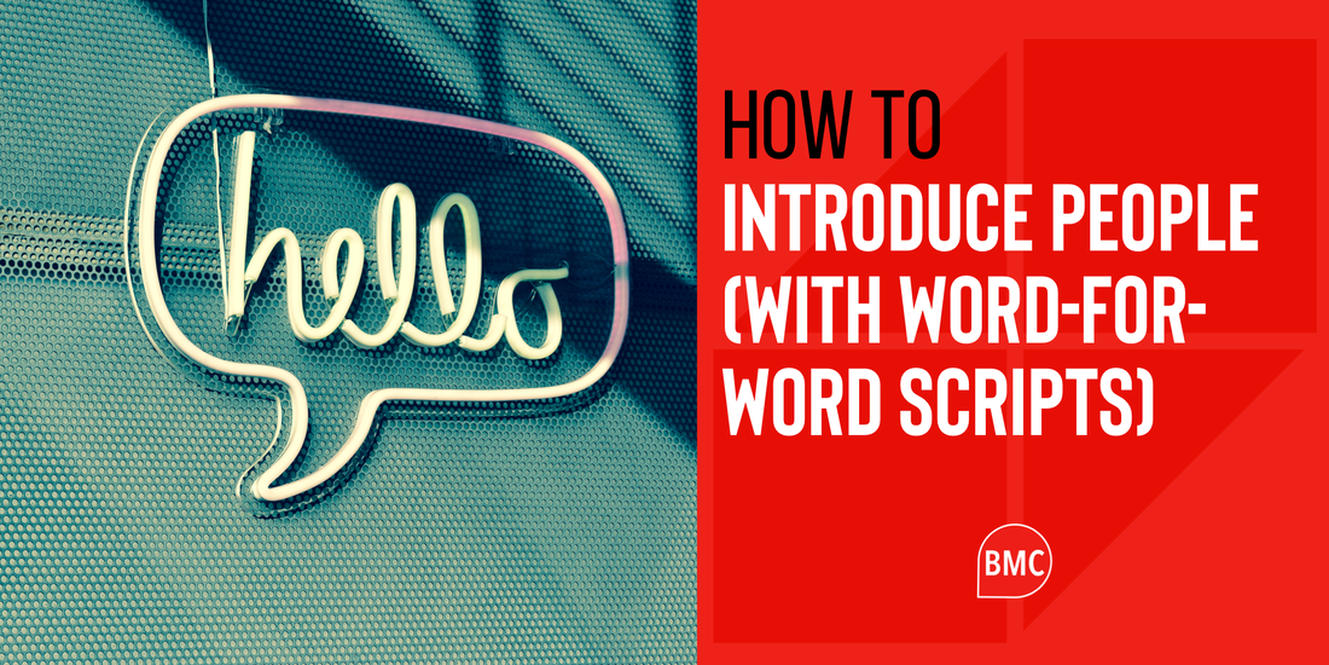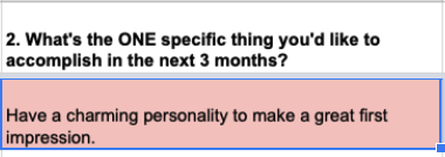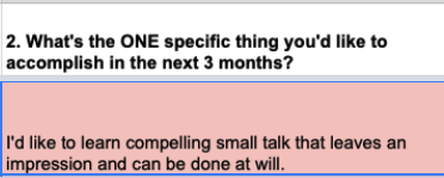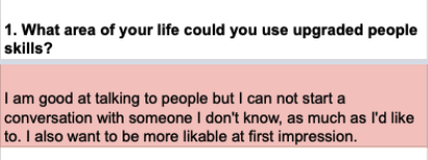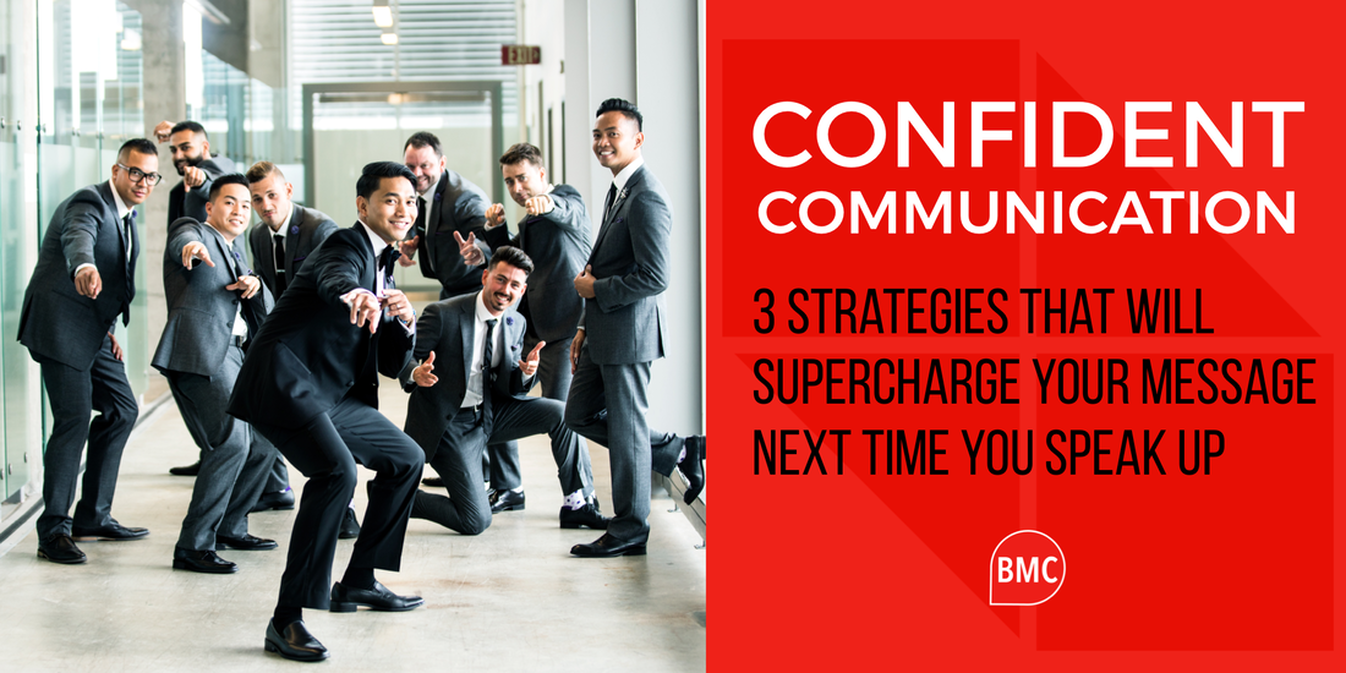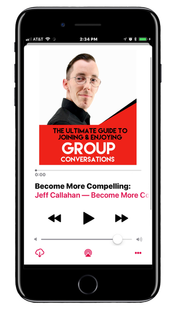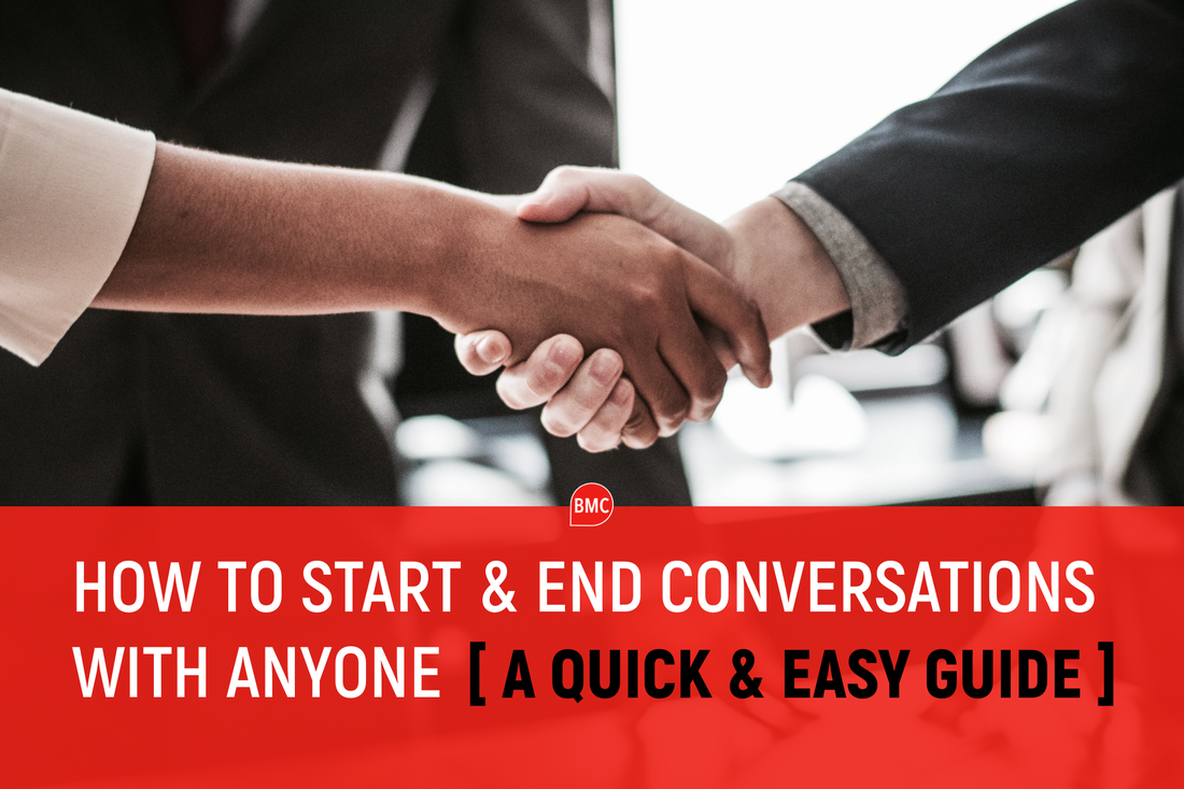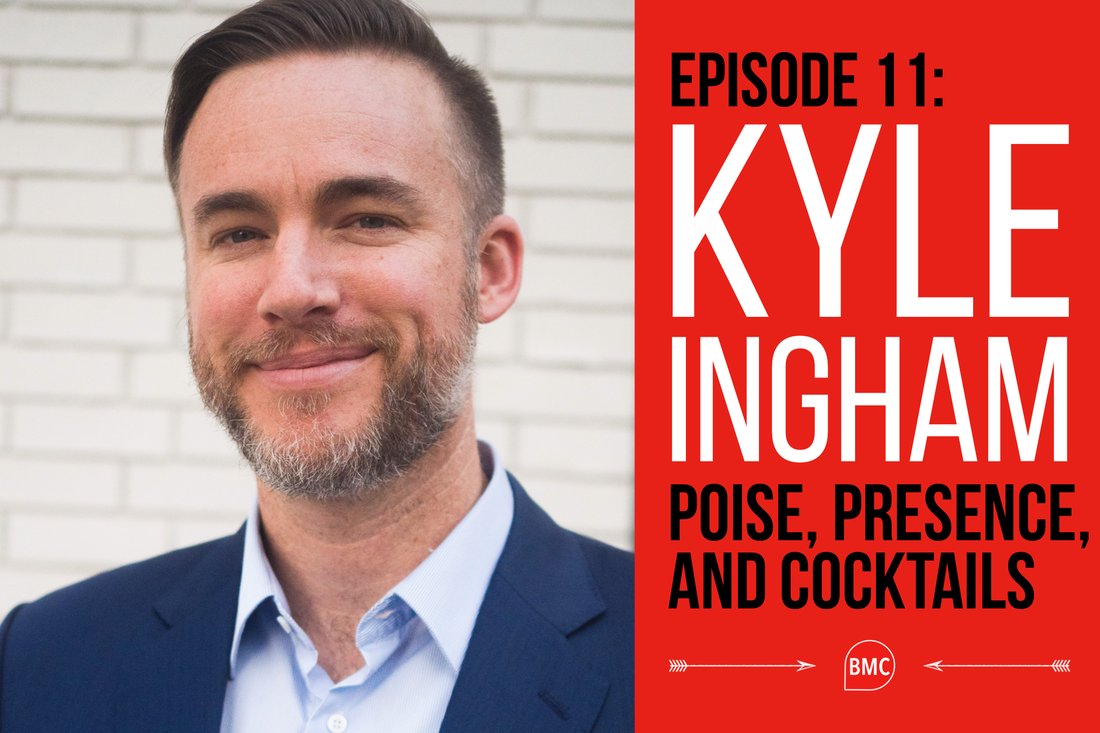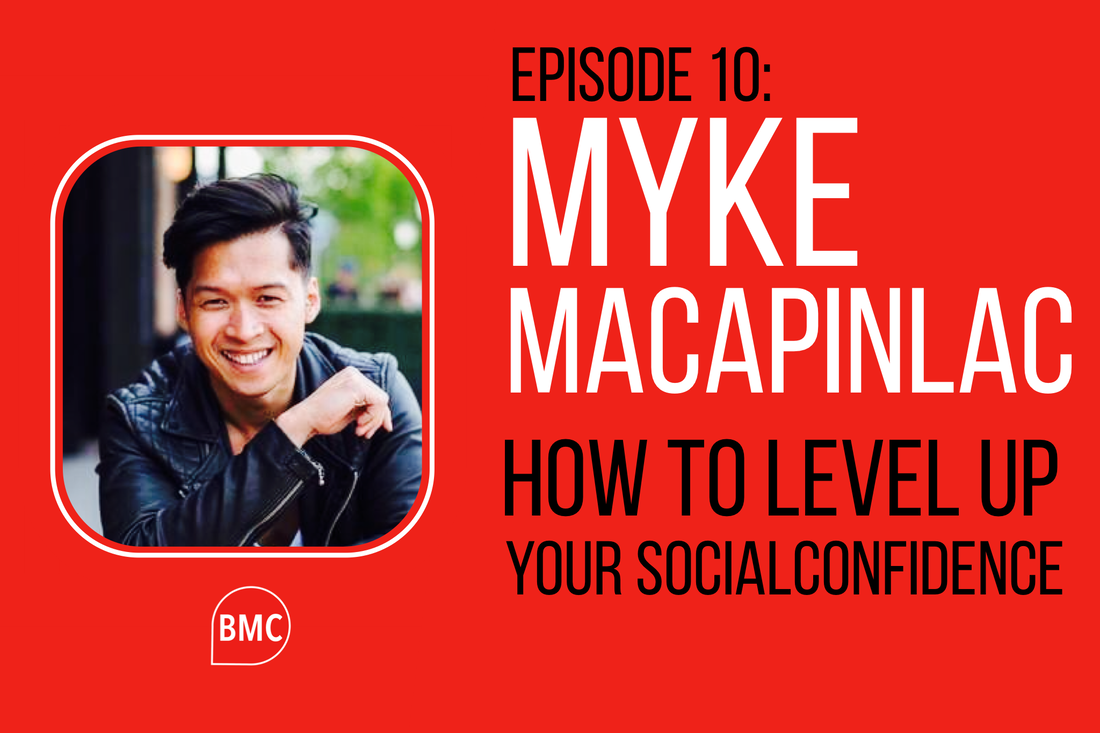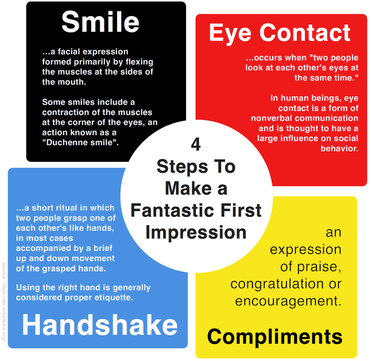|
Real talk…
EVERYONE feels socially inept at some point in their lives. It’s just part of being human. Maybe you’ve felt socially inept when…
If you’ve ever felt like that...I’m here to tell you that it’s okay. It happens! And the great thing is that being socially inept is something that can be improved. Working on your communication skills can help you become more socially skilled and that feeling of being socially inept will fade away.
In this article, you’ll learn…
Learning how to make friends as an adult is HARD!
I feel like they should have warned us. But when you think about it, it makes sense... In school, you have classes, labs, study groups, organized functions, clubs...all sorts of ways to meet new people and connect. But once you’re working 8-5 (or 7-6 if you’re like most of us), it becomes a lot more difficult to find the time and energy to invest in other people. Not to mention finding people your age and with similar interests in the first place! And once you DO find those people, how do you turn them into friends?
We’ll cover all these questions and more!
In this article, you’ll learn:
I believe that everyone has the ability to improve their social skills and become more outgoing - you just have to tap into that outgoing part of yourself.
But as any introvert who’s tried to teach themselves how to be more outgoing can tell you - it’s not as easy as it sounds. “Know thyself.” -Socrates Socrates wasn’t playing around when he dropped this philosophical morsel on us. He believed that the answer to all happiness and philosophical unrest was to look within where all knowledge already lives, waiting to be remembered. I love this idea because it’s an equalizer. We might have different starting points, but we can ALL improve and grow. If you want to learn how to be more outgoing--you just need the mindsets and tactics to get there! So let’s talk about how to be more outgoing as an introvert, step-by-step. In this article you’ll learn:
Ready? Let’s dive in!
Knowing how to introduce people is a great skill to have.
Example: A friend's wedding. At the reception, after grabbing a fresh drink, I saw my former co-worker, Michael. He stood up and walked over, shook my hand, and we talked for a few minutes about the World Series. As our conversation was wrapping up, he said "Hey! Let me introduce you to my wife."
What I was expecting: To walk over and be introduced with a simple "Hey, this is my buddy, Jeff."
If you've ever wondered how to make a great first impression you're not alone.
Here are a few messages from my readers who want to master first impressions.
It’s okay if you’ve made some cringe worthy first impressions.
Take this gem from my wife: A few years ago she was at her boss' house for a party. She was joking around with some of her coworkers, who were on the other side of the room. She playfully extends her middle finger. At that PRECISE MOMENT her boss' father turns around and intercepts the middle finger. I imagine that space and time slowed down while my wife watched him go through different emotions. Confusion, disbelief, denial, shock, sadness, and finally disdain. After the fabric of reality had stabilized, he looked away while saying "How RUDE." This story makes me laugh every time. First impressions are crucial:
Here’s the deal with first impressions: after people make up their mind about you, (Some studies say in as little as 1/10th of a second) they use confirmation bias to only look for evidence to back up their initial impression. I’m not here to sugar coat things. I’m here to supercharge your people skills. So what can you do to reliably create great first impressions with almost everyone you meet? Here Are 8 Uncommon Tips To Make A Great First Impression
It all starts with your mindset because 80% of the work is done before you ever shake hands...
Confident Communication: 3 Skills That Will Supercharge Your Message Next Time You Speak Up10/23/2018
Ever notice how life seems effortless for people who have a little extra confidence?
So what's the deal? Are these people mutants who have these unattainable traits that you can't have? HELL NO! Whether you’re leading a meeting, pitching a new client, or starting conversations at happy hour, confident communication is one of the most important skills you can have. Each of the following three skill is powerful but I recommend stacking all three skills for maximum impact. 1. Eliminate Qualifying Words Confident communication killers You're in a meeting, your boss asks you a straightforward question about next steps on a project. "Well, I just think that we maybe should consider...” You trail off. Somewhere I am softly weeping while lighting a candle in memory of your fallen confidence and credibility.
Did you water down your message until it's unrecognizable? (This is a "hidden truth" that almost NO ONE acknowledges, but everyone feels.) When we use timid language we get timid results...the ripple effects are wide-ranging:
In the short term, we may not persuade people at the meeting, but spread out over 20-30 years, it can have a gigantic impact on our life's trajectory. So what can we do to fix it? I want you to repeat after me: “It is okay to present myself confidently.” Step one: admitting to yourself that it's OKAY to test a new approach. Step two: addition by subtraction. In most cases, you'll delete confidence undercutting words from your vocabulary. This is simple, but not easy. At first, you'll use the same timid words, only this time, you'll notice them. Over time, you'll be able to use alternatives or (in most cases) stop using those qualifying words altogether. Use this action step to help:
Over the last few months I’ve received dozens of emails from people who are struggling with how to have better group conversations.
This guide will help you when it comes to:
Tell me if these ring true for you:
“I just feel like I’ll be bothering them if I walk up and start talking…” “What if they all know each other?!” “I don’t want to have to be LOUD and interrupt people! it’s just not who I am...” That’s why I created this guide for you, to help you smoothly join a group so that you can… ...meaningfully contribute to group conversations at work without feeling awkward and self conscious. ...Easily make new friends and contacts at a conference. ...feel comfortable and enjoy group conversations at a party. And on a deeper level: ...have options of who you surround yourself with. Which as it turns out, has a huge influence on success ...feel like you are the kind of person who can thrive in social situations (which will make it more likely that you will thrive even more in group conversations, creating a virtuous cycle) In this guide you’ll find some of the best strategies for joining and contributing in group conversations. To create this guide, I pulled from my experience having 90,000 conversations over 11 years...but I knew that wouldn’t be enough. I also did a LOT of research into what works and what doesn’t. The result? You don’t have to look in 100 different places and piece together quality, actionable information. It’s all right here for you. Let’s swan-dive in…
Have you ever been at a conference, a cookout, or a networking event and you felt that twinge that says "You should talk to that person".
At this point, like a split in the road we have two choices: A. Check your instagram for the 231st time today. B. Start that conversation. When we meet new people, we get to expand our circle of people. This could lead to a business partnership, a new best friend, or a new client. But you'll never know unless you open your mouth. There’s a phrase my mentor likes to say: “90% of the work is done before you enter the room.” It’s easier to start a conversation after you’ve had a successful conversation. But how do you start those conversations? Enter Conversational Muscle Memory. Conversational Muscle Memory is built on the idea that when you start small, low-stakes conversations throughout your day, it's easier to start more conversations because you’ve built momentum. Once you’ve built that momentum, it’ll be easier to start a conversation with that one person you really want to talk to at happy hour. I explain more in this video:
On this episode of Become More Compelling Radio, I'd like to introduce you to my friend Kyle Ingham (@DistilledMan), founder of The Distilled Man.
Kyle is awesome, he has the poise and style Don Draper and the wit and charm of Ryan Reynolds. (A winning combo for sure.) In this wide ranging conversation we tackle how to make great first impressions, how to be likable, how to build rapport, negative self talk, giving effective feedback at work, cocktails, and much more. Kyle has been featured in the San Francisco Examiner, Forbes, The Good Men Project, among others. Free Resource For BMC Listeners:
Kyle has an excellent free resource for BMC Radio listeners:
The 48 Hour Gentleman: Your One Weekend Plan For More Confidence, Poise, and Manly Know-How. This excellent guide covers how to cook a steak, get a shirt tailored, male a Manhattan, and much more. Highlights:
Listening Options:
Myke is a really interesting guy, he was born in Asia, move to the Middle East, then landed in Canada at age 16 while not being able to speak English.
Myke had to start from scratch with people skills. The customs of places he'd lived his entire life were suddenly reversed in a western country. If you've wanted to level up your social confidence, make better first impressions, or network authentically at a conference this episode will be exactly what you need. More about Myke: Myke Macapinlac was a shy immigrant who used to work a boring engineering job and became a talk show host, a social dynamics specialist, and a lifestyle entrepreneur. He now teaches shy guys to develop social confidence so they can succeed in their personal, romantic, and professional lives. His work has been featured in the Calgary Herald, on Breakfast Television, on Shaw TV, and in the Huffington Post. Myke's Free Gift For BMC Listeners:Highlights:
Listening Options:
Also, she has a free gift for Become More Compelling readers. BOOM.
Enter Felicia: I remember after reading Neil Strauss’s famous book, The Game, I was fascinated by this idea of ‘approach anxiety’. It’s typically what a lot of men feel as they are about to approach women -- a tightness in their chest, sweating, and of course, the prominent fear of being rejected. But what I realized is that ‘approach anxiety’ is not limited to just men. Women feel it, too! And even I experience it myself--and this is what I help people with for a living. When I’m at an event and see a stranger I want to start talking to, my heart starts beating faster, I become self-conscious, and I start to think: “What am I going to SAY?” |
I'm Jeff.
I'll help you supercharge your people skills so that you can have a more fulfilling career, business & social life. Over the last 15 years, I’ve learned... (Read More) Popular Posts• 5 Ways a Communication Coach Can Help You Become a Better Communicator
• The Ultimate Guide To Joining & Enjoying Group Conversations • How to Never Run Out of Things to Say Topics
All
|
© Become More Compelling LLC Disclaimer: Results may, and probably WILL vary, and you should NOT use this information as a replacement for help from a licensed professional.
Terms & Conditions. Privacy Policy. Disclosures. Contact. Become an Affiliate.
Terms & Conditions. Privacy Policy. Disclosures. Contact. Become an Affiliate.




